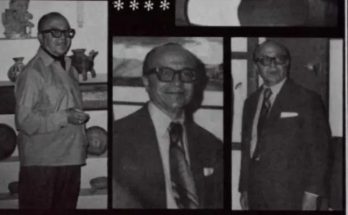By Luis Felipe Rodriguez
San Francisco Church is the Churrigueresque-style glory of San Miguel de Allende. Construction began in 1779 and took 20 years to complete. There are some erroneous notions about the construction of the church, such as the attribution to the architect Lorenzo Rodriguez, who designed the Sagrario de Mexico. He could not have done it, because he died in 1774. It is also not true that it was made by indigenous hands, because all the churches and houses in Mexico were made by Mexican masons and stonemasons. Architecture is the realm of the architect and the façade is done by draftsman. The rest of the construction is done by the manual skill of all the builders. Sometimes this can give a certain clumsy, humorous or improvised feel. In fact, no one know who designed the façade of San Francisco Church.
The Churrigueresque façade of the San Francisco Church is one of the best in Mexico because of the proportions, slender stipes and finely sculpted medallions. The unfinished side is even more slender and delicate. One feature of the interior recalls Churrigueresque works in Mexico City, such as the Tabernacle. However, the Guanajuato regional school style is also present, as seen in the wavy arch of the entrance that recalls San Diego church in Guanajuato, the rectangular window decorated with rays, and other churches in Guanajuato. The interior has excellent proportions, with a tall and spacious nave full of interesting neoclassical altars.

Francisco Eduardo Tresguerras built the squared-shaped tower with lowered corners. It can also be considered octagonal, like that of the small tower of the Santa Casa de Loreto of San Miguel (1735). The style is repeated in the tower of El Carmen de Celaya (1808). This deep baroque tradition is present in other churches in Mexico, such as Santa Prisca de Taxco (1758) and the old Basilica of Guadalupe del Tepeyac (1709). In SMA’s San Francisco Church, columns are present on the shorter sides of the octagon. One is Tuscan style, another has Ionic features with flat fluted pilasters of the same style, such as festoons, and a third one is Corinthian style.
On the façade are full-length statues of seven Franciscan saints: Saint Louis King of France; Saint Ferdinand of Castile; Saint Anthony of Padua; Saint Bonaventure; Saint Diego of Alcalá; Saint Pascual Bailón; and San Pedro Regalado. The eighth was destroyed by lightning in 1943.
The portal is perfectly elaborated, revealing the architect’s defined and mature artistic ability. He repeats some of his artistry in the decorative elements in the portico of the Immaculate Conception Church (Las Monjas), in the central window of the house of the Count of Jaral de Berrio (1787) (located in San Felipe, Guanajuato), known as the House of Pachón; and in the portico of the Parroquia de Dolores Hidalgo (1778).
Sources: San Miguel de Allende and Its Monuments, by Francisco de la Maza, 1939
San Miguel prints 3, J. Cornelio López Espinosa, 2006




